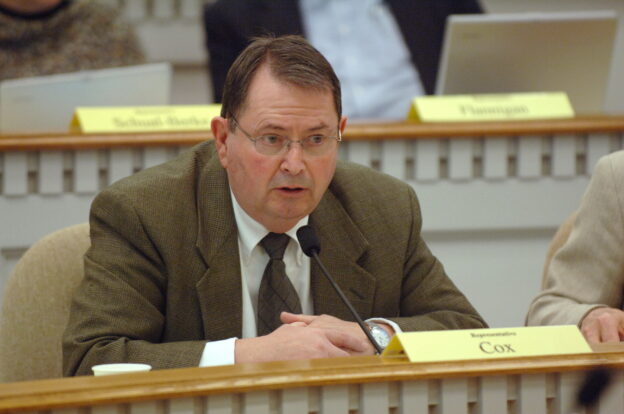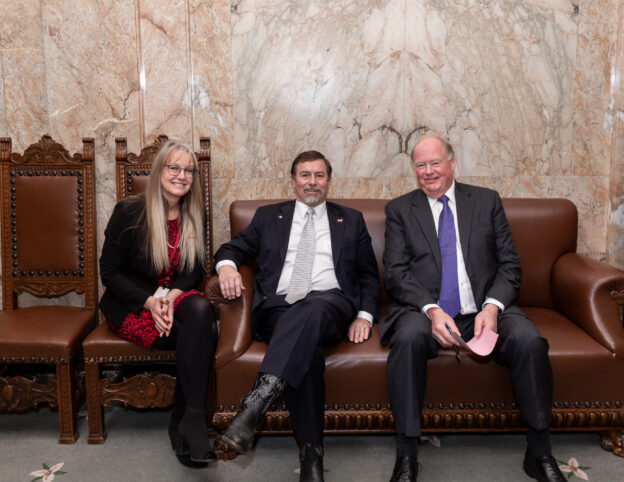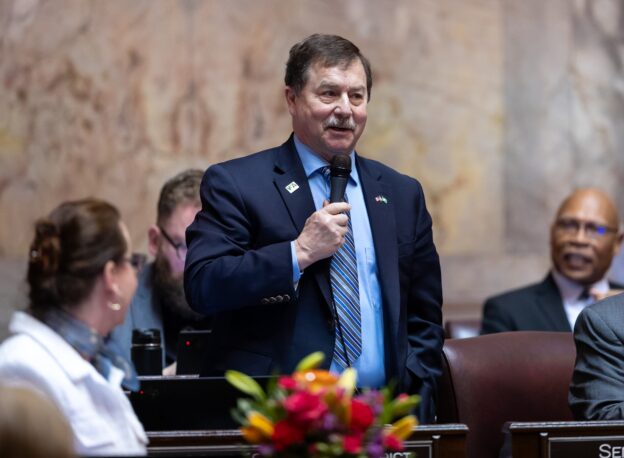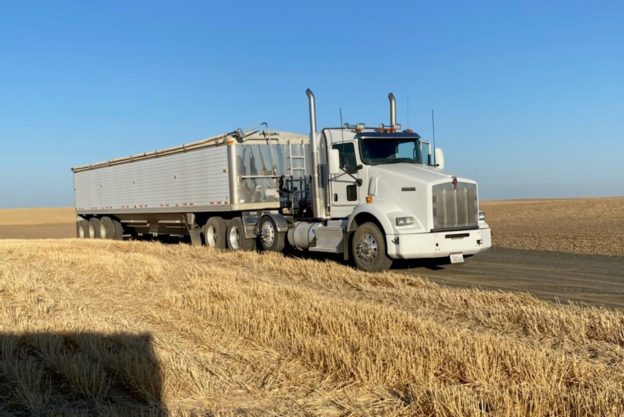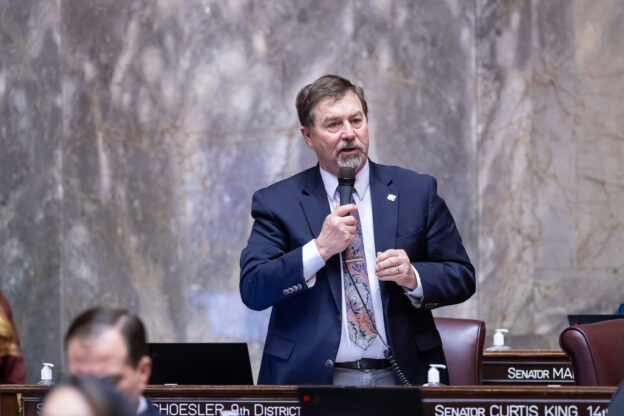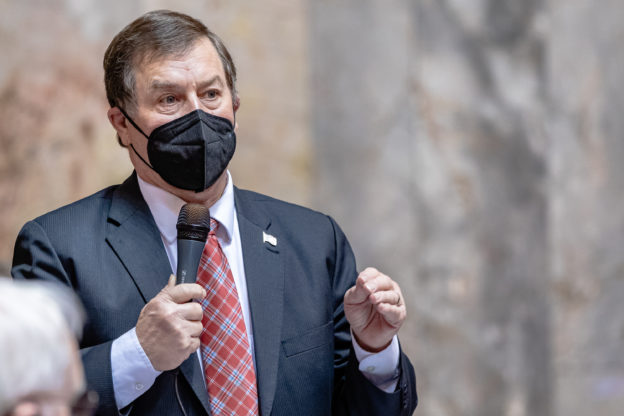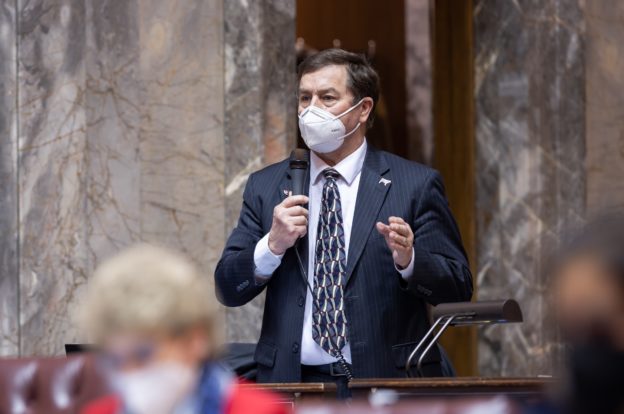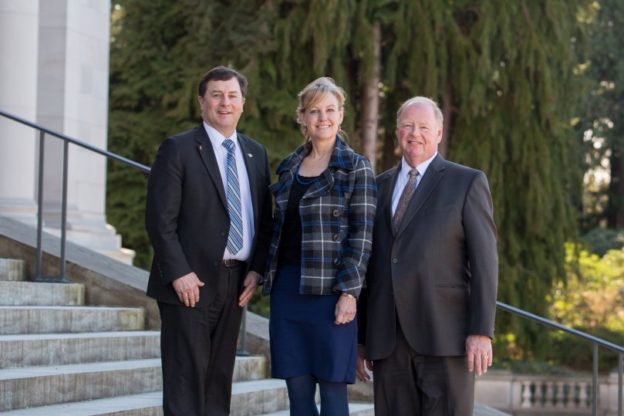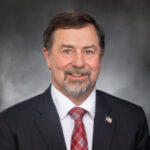
Sen. Mark Schoesler
OLYMPIA… The two state senators who farm in eastern Washington say they’re not sure what to make of a proposed offer of money for farm-fuel users who got stuck paying a surcharge on their fuel purchases because of the state’s cap-and-trade law.
The payments, which could amount to no more than pennies per gallon for many farming operations, are offered in the state Senate’s supplemental operating-budget proposal.
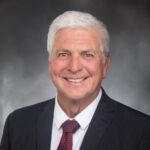
Sen. Perry Dozier
“I don’t know anyone in the agricultural sector who would view this as a solution to the fuel-surcharge issue we’ve been fighting more than a year, since cap-and-trade was fully implemented,” said Sen. Perry Dozier, R-Waitsburg.
“These payments wouldn’t come close to making up for what farm-fuel users have been forced to pay because the executive branch of state government failed to uphold the promise made in the cap-and-trade law – that farm diesel and fuel used by the maritime industry would be exempt from the surcharge this new program would create,” said Sen. Mark Schoesler, R-Ritzville.
Schoesler serves on the Senate Ways and Means Committee, which held a public hearing yesterday on the proposed supplemental operating budget. The budget appropriation doesn’t refer to the payments as rebates or reimbursements, and routes them through the state Department of Licensing – not the Department of Ecology, which is responsible for implementing the cap-and-trade law.
“Are these payments a way for the state to ease its guilty conscience for failing so badly on upholding the promised fuel-surcharge exemption? Does the timing have anything to do with the certification of the initiative to repeal the cap-and-trade law? Are the supporters of cap-and-trade just looking to throw a bone to agriculture? No one who buys farm fuel by the truckload would come up with this,” said Dozier.
Dozier and Schoesler are the sponsors of Senate Bill 5728, introduced in 2023. It would basically force Ecology to develop a process for implementing the promised exemptions. The bill has been ignored, and a task force set up by Ecology during the summer failed to completely resolve industry concerns.
Given that background, the senators were surprised to see a $30 million appropriation, buried on page 564 of the new Senate budget proposal, “solely for payments to support farm fuel users and transporters who have purchased fuel for agricultural purposes that is exempt from the requirements of the Climate Commitment Act… but paid a surcharge or an additional fee.”
The payments would be made by the Department of Licensing to “noncorporate farms” first – a term not defined in the budget bill – depending on annual farm-fuel consumption. The first tier, those using less than 1,000 gallons annually, would receive $600; the second tier, between 1,000 and 4,000 gallons consumed, would get $2,300; and those using 4,000 gallons or more a year would receive $3,400.
“It’s a lame proposal because most farms of any size operate as a corporation,” said Schoesler. “On top of that these tiers make no sense, except they’re consistent with the whole premise of cap-and-trade – or ‘cap-and-tax,’ as it should really be called. This law is about punishing people who use fossil fuel. It’s as though they think there are electric combines down at the farm-equipment dealer.”
Dozier agrees the tiered approach is not realistic. “One tractor pulling a heavy load can go through 25 gallons of fuel an hour. At that rate just one week of 10-hour workdays will blow past the 1,000-gallon threshold.
“It’s not difficult for a farm to go through 30,000 gallons of diesel in a year. Under this proposal, that’s 11 cents per gallon. Adding more tiers based on 10,000-gallon increments would be a slight improvement, but if the intent is to honestly compensate users who have been paying the surcharge, the payments to them should really be gallon for gallon, with no tiers at all.”
The Senate budget proposal also includes $35 million to provide low-income households with energy utility bill assistance. Like the payments proposed for farm-fuel users, those subsidies would be funded with proceeds from the cap-and-trade law, which has enabled state government to rake in about $1.8 billion in the past year from auctioning “carbon allowances.”
“In December the governor proposed using cap-and-trade money to subsidize low-income households. It wasn’t a surprise to also see it in the Senate budget. But this money to pay farm-fuel users feels like something thrown in at the last minute by people who don’t understand agriculture,” said Schoesler.
“This is a pretty responsible budget proposal overall, and I appreciate that Republicans had a fair amount of input about the priorities,” said Dozier, “but it needs some work to be a budget that truly respects the needs of agriculture.”











